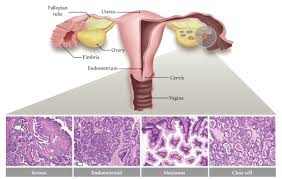The microRNA miR-192/215 family is upregulated in mucinous female internal reproductive organ carcinomas
MicroRNAs (miRNAs) are non-coding RNAs with numerous biological functions. They play a vital regulative role by targeting specific mRNAs for degradation or translation repression. In thus doing, they will influence the development and/or progression of some forms of pathologic process as several transcripts square measure affected at the same time, resulting in profound alteration of signaling pathways.
miRNA liberation could be a pathogenetic mechanism in cancers of the respiratory organ, liver, giant bowel, and ovaries. Lately, many analysis teams have aimed to characterize the miRNA signature within the numerous forms of female internal reproductive organ cancer (OC). The Cancer genome Atlas consortium launched the primary cooperative effort to spot the miRNA profile in top-quality serous female internal reproductive organ carcinomas (HGSC), when that several alternative studies followed specializing in miRNA expression in also the less common OC subtypes.

Figure 1: Ovarian Carcinoma
Several miRNAs were found to be deregulated like miR-141 and miR-192 that are overexpressed completely in endometrioid and mucinous carcinomas, severally. they could thence be diagnostic biomarkers in these growth subtypes. conjointly different miRNAs are shown to be valid prognostic and predictive biomarkers in female internal reproductive organ carcinomas. for instance, overexpression of the miR-200 family is related with a much better response to paclitaxel in patients with OC, and miR-9 upregulation was related to an improved outcome and sensitivity to cisplatin. Recently, current miRNAs like miR-21, miR-200c, and miR-1246 were demonstrated within the blood of patients with OC.
Despite the increasing interest within the role of miRNA in female internal reproductive organ carcinogenesis, very little is known regarding this subject within the less common malignant tumors of this website. we have a tendency to thus investigated the expression status of miRNAs belonging to the miRNA-192/215 family, specifically miR-192, miR-194, and miR-215, in several kinds of female internal reproductive organ tumors, starting from sex cord tumors to numerous carcinomas.
International Conference on Molecular Biology & Stem CellsVenue: Paris, France, November 19-20, 2018
URL: http://urltrim.co/iatsEp
URL: http://urltrim.co/iatsEp
Comments
Post a Comment